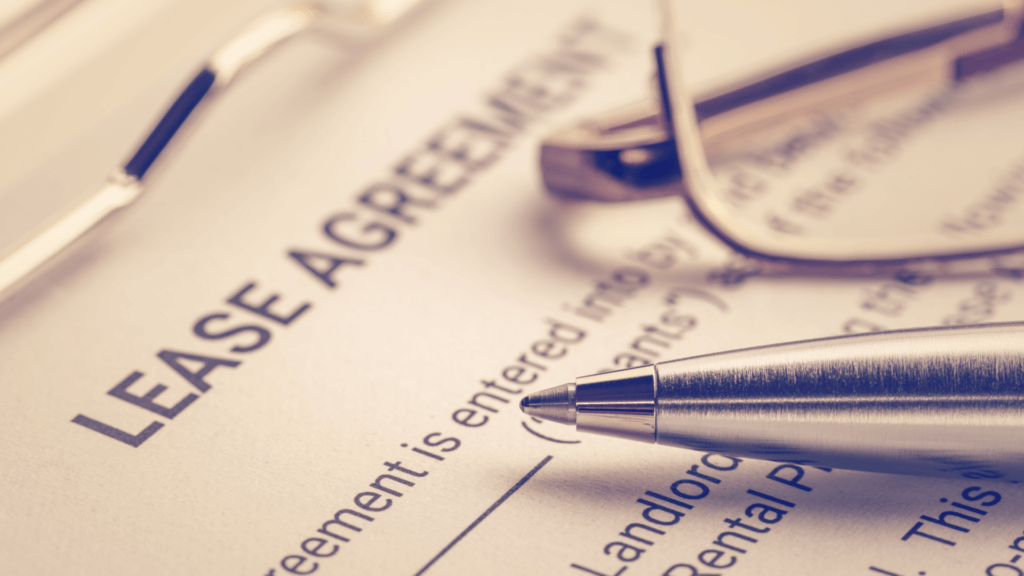
For commercial landlords, this year has been particularly challenging.
As commercial tenants continue to choose not to pay rent or wrongfully terminate their leases, landlords may feel they have no options; however, this is not the case. A commercial lease dispute attorney may be able to help.
Understanding the options that landlords have available to them once a large commercial tenant defaults on a lease is incredibly important during this time.
What Commercial Landlords Can Do When a Lease Dispute Arises
Amid the ongoing COVID-19 pandemic, commercial landlords have been left at a crossroads once a tenant stops making timely and full rent payments.
Although most commercial leases are heavily negotiated at the outset, it’s important that the terms of each lease are carefully reviewed over time.
Because each lease is different, careful attention must be paid to the terms of each document and its details.
In the event a commercial tenant does stop making rent payments, the landlord should consult the provisions of the lease governing default events. The lease will likely deem nonpayment of rent an event of default.
Once the landlord is able to declare the tenant in default and give them proper notice under the lease, the landlord will then have several options available to move forward, including:
Lease Termination
One of the options available to landlords in the event of commercial tenant default is to simply terminate the lease entirely and demand payment of any unpaid amounts, such as the landlord’s costs and any rent owed for the remainder of the lease term.
This is especially important to consider with longer-term leases, as lease termination could require a reduction of future rents to the net present value and may need to account for any reasonable rent payments the landlord could potentially obtain from a new tenant.
Ultimately, lease termination absolves the tenant of its rent obligations while allowing the landlord to recover the amounts owed.
This option could be particularly enticing for commercial landlords during the pandemic as the current ‘fair rental value’ of the property is lower than the amount specified in the lease.
However, a replacement tenant would have to commit to pay most or all of the future rent owed.
Terminate Tenant’s Right to Possession
Another option for landlords to consider is to terminate the commercial tenant’s right to possess the premises, or more simply, locking them out of the property.
With this option, the tenant remains on the hook for monthly rent payments as they come due and the landlord can continue to declare the tenant in default for each month in which they fail to pay.
Additionally, the landlord can seek the entire amount owed as it comes due, minus any rent obtained from a replacement tenant.
It’s important to note that this option carries the downside of requiring the landlord to wait each month in order to collect rent rather than collecting the full amount at once as in a full lease termination.
On the upside, if the landlord is unable to find a replacement tenant, they can continue to collect the full amount of rent from the existing tenant without a reduction to the net present value of the lease payments.
Take Possession of the Premises and Evict
Lastly, the landlord may be able to change the locks and expel the commercial tenant entirely.
Under this option, the tenant will no longer be obligated to pay rent, but it cannot occupy the premises any longer.
In the most practical sense, the best case scenario is for the landlord to obtain a replacement tenant at a rental rate close to what they were already receiving from the abandoned tenant.
The Mitigation Requirement
When considering these options, the law in most states (including Texas) requires a landlord to undertake ‘reasonable effort’ to mitigate its damages, meaning that they must first try to find a suitable replacement tenant.
In Texas, any clause within a lease that aims to waive or exempt the landlord from this requirement is void.
In any of the options available after default, the landlord is required to use reasonable efforts in an attempt to find a replacement tenant.
Commercial Lease Dispute Attorneys
Commercial landlords are facing many different challenges as businesses continue to wrongfully forgo making timely rent payments or abandon leases.
Because commercial leases are legally binding agreements, these complex situations require the skill and tenacity of an experienced commercial lease attorney.
At Raizner Slania, we have years of experience representing commercial landlords in Texas and across the nation.
If you are a commercial landlord dealing with a large or national tenant that is delaying or refusing to make rent payments at the expense of your business, we can pursue litigation on your behalf.
Contact Raizner Slania today to see how we can best help you.


